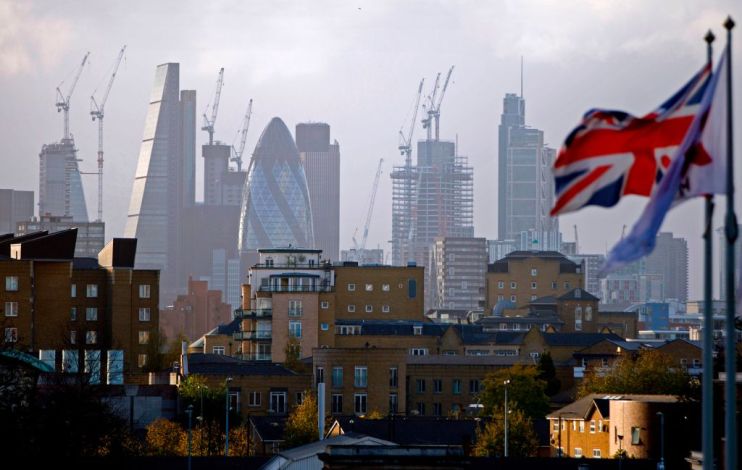No-deal Brexit: The potential winners and losers

As you read this, Brexit negotiators are working around the clock to come to an agreement that will enable the UK to leave the EU in an orderly way by the Halloween deadline. Both sides have said they are committed to working out a deal, but with time so short, nothing is certain.
If they fail, the stakes are high. The Bank of England (BoE) warned last week that a no-deal Brexit poses “material risks” to the UK economy.
If you want to keep track of what’s happening, look to the pound. Described by Jason Hollands, managing director of Tilney, as the “main lightening rod” for these uncertainties, sterling can be used as a barometer for the effect that political developments are having on the economy.
And last week, the pound made some impressive gains, climbing to a three-month high of $1.268 from $1.222 as Irish Taoiseach Leo Varadkar alluded to the potential for a Brexit agreement. However, gains pared back yesterday morning, falling to $1.255 as it became apparent that negotiations with the EU are yet to bear fruit.
“There is clearly a lot of anxiety around sterling assets, particularly those closely tied to the domestic economy,” says Hollands. “Anything short of an agreed deal would be problematic in the near term.”
So with the Brexit deadline little over a fortnight away, which sectors could prove most resilient in the face of a no-deal, and which could struggle?
The good news is that the core financial system, which includes major banks, broker dealers, and insurance companies, are prepared for a worst-case Brexit, according to the BoE’s financial policy committee (FPC).
After conducting a stress-test, the FPC found that the banking system demonstrated its resilience to – and capacity to keep lending in – a disorderly Brexit scenario. Reassuringly, the committee also said that: “insurance companies have sufficient surplus capital to withstand very sharp falls in property and equity prices.”
Beyond finance, one key indicator for nervous investors for how easily a company will find it to ride out any incoming storms is how reliant it is on the UK for it revenue streams. A no-deal Brexit would likely prompt a big drop in sterling, which in turn would benefit the companies with a high proportion of overseas income. This should help insulate the bigger players in the FTSE 100 (around 75 per cent of UK-listed companies derive most of their income from overseas).
As well as opting for larger companies with overseas earnings, Ian Forrest, investment guidance analyst at The Share Centre, says the most resilient stocks over the next few weeks are likely to have reliable cash flows, and decent dividends. He puts GlaxoSmithKline, Royal Dutch Shell, Vodafone, Unilever, Compass, Experian, and Diageo into this basket.
“Investors will also naturally migrate towards defensive sectors such as utilities, which could benefit companies such as United Utilities and National Grid,” he says.
On the flipside, given that flows of foreign capital into the UK have already suffered, Naeem Aslam from Think Markets advises risk-averse investor to steer clear of the UK’s construction and manufacturing sectors.
Retailers and travel operators are also already having a tough time, as we’ve seen the recent struggles of a number of high street brands, as well as the recent demise of the world’s oldest travel firm, Thomas Cook. Their problems may not have been caused by Brexit, but the uncertainty is definitely exacerbating them.
It’s also likely that property assets will feel the pain, particularly those in London, which tend to be reliant on international investors and tenants.
Indeed, Forrest points out that commercial property groups, including British Land and Land Securities, have seen their shares suffer in recent years, partly due to their high exposure to London property, as well as fears that a no-deal scenario could cause a sharp drop in capital values.
Hollands also warns investors to be very wary of gilts: “10-year gilts are yielding just 0.61 per cent, so are negative in real terms. In a no-deal scenario, we might also see a spike in inflation as rising import costs pass through.”
If a no-deal Brexit does become a reality, it’s likely that there will be a knee-jerk reaction to the stockmarket, as big investors de-risk their portfolios and reduce their equity exposure.
But over time, we could see a gradual recovery, as the BoE will take measures to mitigate the disruption. Indeed, Forrest argues that investors will eventually recognise that attractive valuations can be found in the UK relative to other major markets.
And if you sift through the bargain bucket, you might find some resilient companies at significant discounts.